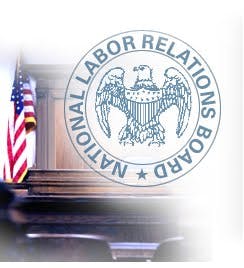By Marc Bloch
The recent decision by the U.S. Court of Appeals for the D.C. Circuit invalidating President Obama’s January 2012 recess appointment to the National Labor Relations Board has thrown the agency into a state of uncertainty.
The Court handed down a ruling at the end of January that deemed the President’s appointments unconstitutional because the Senate was not in recess when Obama made the appointments. As a result, the court held that the NLRB’s ruling in case at issue on appeal was invalid because the board did not have a valid quorum when it issued the ruling.
The White House disagreed with the federal court’s ruling, calling it “novel and unprecedented.” Republicans, on the other hand, have hailed it as a benchmark for governmental accountability and a victory that could help employers and workers surmount “excessive regulations.”
Despite decision, business as usual at the NLRB
Like the White House, the NLRB also views the court’s decision unfavorably. The decision is seen as the cornerstone action toward invalidating other NLRB rulings issued over the course of the past year. As noted by NLRB Chairman Mark Pearce (D), the NLRB “believes that the President’s position in the matter will ultimately be upheld.”
For the time being, it appears the NLRB will continue to conduct business as usual, evidenced by Chairman Pearce’s affirmation that the agency will “continue to perform [its} statutory duties and issue decisions,” despite the appeals court’s decision.
While the Court’s decision, in all likelihood, will be appealed, it already has sparked a challenge in the Fifth U.S. Circuit Court of Appeals, based in New Orleans, regarding another controversial NLRB ruling regarding compulsory class arbitration agreements. The NLRB struck down, as a violation of the National Labor Relations Act, an attempt by a nonunion employer to ban class arbitration agreements. The provision which was struck down compelled non-union employees to waive their rights to file class-action arbitrations against the employer.
These two NLRB decisions are among many expansive and contentious rulings decided since January 2012. It is likely that similar challenges will be forthcoming in an effort to throw out the NLRB’s ruling based on a lack of quorum.
Supreme Court will have to weigh in
The most recent decision clearly is headed for the Supreme Court, where, if upheld, could provide the basis for invalidating many of the NLRB’s rulings in the past year. For employers, it would be a welcome victory for those who have expressed dismay at many – if not all – of the NLRB’s unprecedented rulings over the past year.
Conversely, the decision could be reversed if the high court disagrees with the District of Columbia Circuit’s interpretation of the President’s recess appointment power not only in respect to NLRB but also to the future and validity of other presidential recess appointments.
Case in point: The decision could also have implications for Richard Cordray, director of the Consumer Financial Protection Bureau, who also was a recess appointment by President Obama during the same period as the NLRB appointments. While the D.C. Circuit Court’s decision has no direct effect on the validity of Cordray’s appointment, it could serve as precedent in holding his appointment invalid.
This already tedious examination of what constitutes a “recess” of the Senate under the Constitution could become even more important should the U.S Supreme Court uphold the circuit court’s decision. It is a case worth watching.
